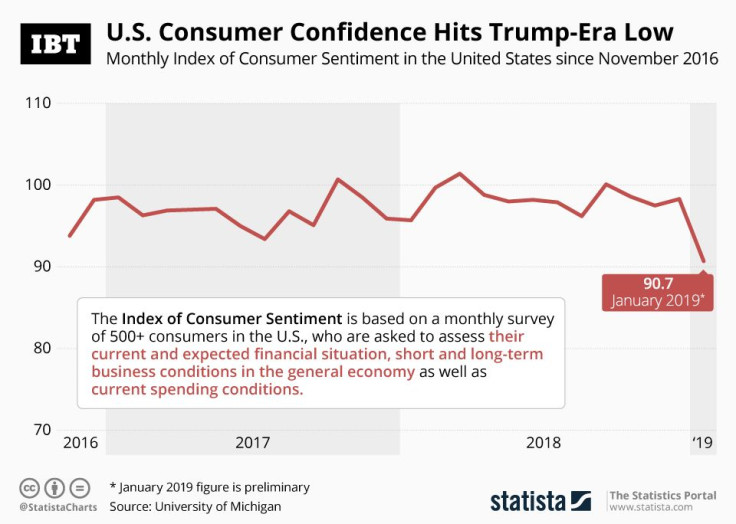Infographic: Consumer Sentiment Drops To Lowest Level Since Oct 2016

As the U.S. government shutdown enters its fifth week with no solution in sight, the economic fallout from the longest standstill in history could be bigger than previously expected. Last week, President Trump’s Council of Economic Advisers (CEA) doubled its estimates of how much the shutdown is hurting economic growth. The CEA now expects quarterly economic growth to be reduced by 0.13 percentage points for every week the standoff between the Trump administration and Democrats in Congress drags on, warning that it could ultimately result in an economic contraction if the government isn’t re-opened soon.
The impasse, that left hundreds of thousands of government workers and contractors without pay, has started to take its toll on consumer optimism as well. The University of Michigan’s monthly Index of Consumer Sentiment, which gauges Americans’ view on their own financial situation as well as the state of the general economy, saw a steep drop-off in January, reaching its lowest level since October 2016, shortly before Trump was elected. “The loss was due to a host of issues including the partial government shutdown, the impact of tariffs, instabilities in financial markets, the global slowdown, and the lack of clarity about monetary policies”, Richard Curtin, chief economist for the Surveys of Consumers said, adding that “the falloff in optimism does not yet indicate the start of a sustained downturn in economic activity”.





















